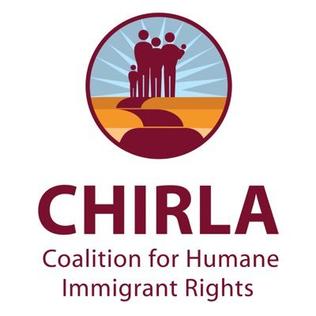
The Natural Resources Defense Council (NRDC) is a United States-based 501(c)(3) non-profit international environmental advocacy group, with its headquarters in New York City and offices in Washington D.C., San Francisco, Los Angeles, New Delhi, Chicago, Bozeman, and Beijing. Founded in 1970, as of 2019, the NRDC had over three million members, with online activities nationwide, and a staff of about 700 lawyers, scientists and other policy experts.

The University of Warwick is a public research university on the outskirts of Coventry between the West Midlands and Warwickshire, England. The university was founded in 1965 as part of a government initiative to expand higher education. The Warwick Business School was established in 1967, the Warwick Law School in 1968, Warwick Manufacturing Group (WMG) in 1980, and Warwick Medical School in 2000. Warwick incorporated Coventry College of Education in 1979 and Horticulture Research International in 2004.
Empowerment is the degree of autonomy and self-determination in people and in communities. This enables them to represent their interests in a responsible and self-determined way, acting on their own authority. It is the process of becoming stronger and more confident, especially in controlling one's life and claiming one's rights. Empowerment as action refers both to the process of self-empowerment and to professional support of people, which enables them to overcome their sense of powerlessness and lack of influence, and to recognize and use their resources.
Advocacy is an activity by an individual or group that aims to influence decisions within political, economic, and social institutions. Advocacy includes activities and publications to influence public policy, laws and budgets by using facts, their relationships, the media, and messaging to educate government officials and the public. Advocacy can include many activities that a person or organization undertakes, including media campaigns, public speaking, commissioning and publishing research. Lobbying is a form of advocacy where a direct approach is made to legislators on a specific issue or specific piece of legislation. Research has started to address how advocacy groups in the United States and Canada are using social media to facilitate civic engagement and collective action.

A social movement is a loosely organized effort by a large group of people to achieve a particular goal, typically a social or political one. This may be to carry out, resist or undo a social change. It is a type of group action and may involve individuals, organizations or both. Definitions of the term are slightly varied. Social movements have been described as "organizational structures and strategies that may empower oppressed populations to mount effective challenges and resist the more powerful and advantaged elites". They represent a method of social change from the bottom within nations.
Economic, social and cultural rights are socio-economic human rights, such as the right to education, right to housing, right to an adequate standard of living, right to health, victims' rights and the right to science and culture. Economic, social and cultural rights are recognised and protected in international and regional human rights instruments. Member states have a legal obligation to respect, protect and fulfil economic, social and cultural rights and are expected to take "progressive action" towards their fulfilment.

Resource mobilization is the process of getting resources from the resource provider, using different mechanisms, to implement an organization's predetermined goals. It is a theory that is used in the study of social movements and argues that the success of social movements depends on resources and the ability to use them.
Mass mobilization refers to mobilization of civilian population as part of contentious politics. Mass mobilization is defined as a process that engages and motivates a wide range of partners and allies at national and local levels to raise awareness of and demand for a particular development objective through face-to-face dialogue. Members of institutions, community networks, civic and religious groups and others work in a coordinated way to reach specific groups of people for dialogue with planned messages. In other words, social mobilization seeks to facilitate change through a range of players engaged in interrelated and complementary efforts.

Natural resource management (NRM) is the management of natural resources such as land, water, soil, plants and animals, with a particular focus on how management affects the quality of life for both present and future generations (stewardship).

The Coalition for Humane Immigrant Rights, also known as CHIRLA, is a Los Angeles county-based organization focusing on immigrant rights. While the organization did evolve from a local level, it is now recognized at a national level. The Coalition for Humane Immigrant Rights of Los Angeles organizes and serves individuals, institutions and coalitions to build power, transform public opinion, and change policies to achieve full human, civil and labor rights. The Coalition for Humane Immigrant Rights of Los Angeles also has aided in passing new laws and policies to benefit the immigrant community regardless of documented status.
César Rodríguez-Garavito is an international human rights and environmental law scholar and practitioner. He is a Professor of Clinical Law and Chair of the Center for Human Rights and Global Justice at New York University School of Law. Rodríguez-Garavito is the founding director of the Earth Rights Advocacy Clinic, the Climate Litigation Accelerator, and the Future of Human Rights Practicum at NYU Law. He is also the editor-in-chief of Open Global Rights, a leading online opinion portal in the human rights field.
Political opportunity theory, also known as the political process theory or political opportunity structure, is an approach of social movements that is heavily influenced by political sociology. It argues that success or failure of social movements is affected primarily by political opportunities. Social theorists Peter Eisinger, Sidney Tarrow, David S. Meyer and Doug McAdam are considered among the most prominent supporters of the theory.
Advocacy groups, also known as interest groups, special interest groups, lobbying groups or pressure groups use various forms of advocacy in order to influence public opinion and ultimately policy. They play an important role in the development of political and social systems.
Legal awareness, sometimes called public legal education or legal literacy, is the empowerment of individuals regarding issues involving the law. Legal awareness helps to promote consciousness of legal culture, participation in the formation of laws and the rule of law.

Activism consists of efforts to promote, impede, direct or intervene in social, political, economic or environmental reform with the desire to make changes in society toward a perceived greater good. Forms of activism range from mandate building in a community, petitioning elected officials, running or contributing to a political campaign, preferential patronage of businesses, and demonstrative forms of activism like rallies, street marches, strikes, sit-ins, or hunger strikes.
Legal opportunity structure or legal opportunity is a concept found in the study of law and social movements. It was first used in order to distinguish it from political opportunity structure or political opportunity, on the basis that law and the courts deserved to be studied in their own right rather than being lumped together with political institutions. Legal opportunities are made up of: access to the courts, which may be affected in particular by the law on standing or locus standi, and costs rules; 'legal stock' or the set of available precedents on which to hang a case; and judicial receptiveness. Some of these are more obviously structural than others - hence the term legal opportunity is sometimes preferred over legal opportunity structure.

Strategic litigation, also known as impact litigation, is the practice of bringing lawsuits intended to effect societal change. Impact litigation cases may be class action lawsuits or individual claims with broader significance, and may rely on statutory law arguments or on constitutional claims. Such litigation has been widely and successfully used to influence public policy, especially by left-leaning groups, and often attracts significant media attention. One prominent instance of this practice is Brown v. Board of Education.
Thomas Martin Partington, is a British retired legal scholar and barrister. He is Emeritus professor of Law at the University of Bristol.

For Alternative Approaches to Addiction, Think & do tank is an international non-profit organization working on, created in 2015 and based in Paris, France.
Shalu Nigam is an Indian lawyer, feminist legal scholar, and author. She was the petitioner in the landmark case Shalu Nigam v. Regional Passport Officer, decided on May 17, 2016, which held that passports can be issued without requiring the name of the father.









